One of these days/years I hope to take a detailed look at Final Fantasy VI with a full-blown analysis project, but until then I might take tiny peeks at specific parts once in a while. Today I had the sudden urge to look into the famous “son of a submariner” line that Kefka shouts early on in the game – so let’s check it out.
Basically, Terra, Locke, and Edgar have escaped Kefka and his henchmen. Kefka is really mad and shouts out as they run by on Chocobos:
 | 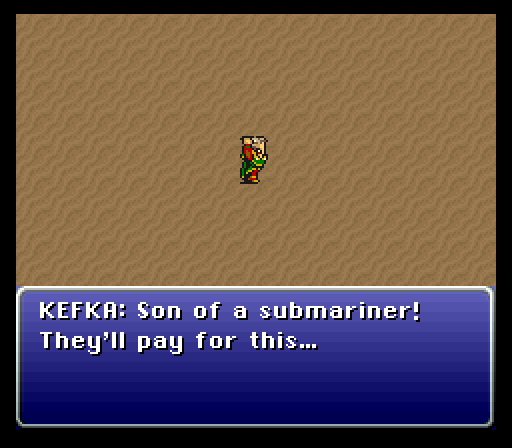 |
And here’s the text side-by-side for comparison:
| Japanese text | Basic translation | Official translation |
| ヒーーー くっそー! | Heeeee! Damn it! | Son of a submariner! |
| このかりは必ず返しますよ! | I WILL repay this favor! | They’ll pay for this… |
Kefka starts off in Japanese by making a certain sound of annoyance or frustration – I’m not sure we have a good equivalent in English… maybe something like “Argh!” is the closest thing I can think of, but it’s not quite the same. In any case, this was taken out of the translation, which I think is fine.
The next thing we see is that he swears! In actuality, Japanese doesn’t have swearing quite like we do in English and other languages, so this is a bit hard to explain. I’ve touched on it briefly before in my MOTHER 3 analysis so I’ll skip the details for now, but basically くそ (kuso) can run the gamut of “gee wiz” to “darn” to “fuck”, depending entirely on context, the translator’s experience, etc.
So in my sample translation above I have “damn it”, but it can be translated many different ways. In the official translation it looks like it was going to be “son of a bitch”, but it had to get changed slightly due to Nintendo’s content policies. I’d be curious to know if it was self-censored during the translation phase or if it had to be fixed after the fact, I’ll have to ask about that someday. Self-censoring is another topic I should write about someday, actually. It’s a pretty big topic.
Anyway, so that’s the deal with “son of a submariner”. I think the most interesting thing of all is that this little, insignificant, unmemorable line in the Japanese version became an often-quoted, memorable, and somewhat controversial line in English. Man, I can’t wait to dig into this game in more detail someday, particularly to see what Japanese lines turned out really memorable among Japanese fans but not nearly as memorable in English.


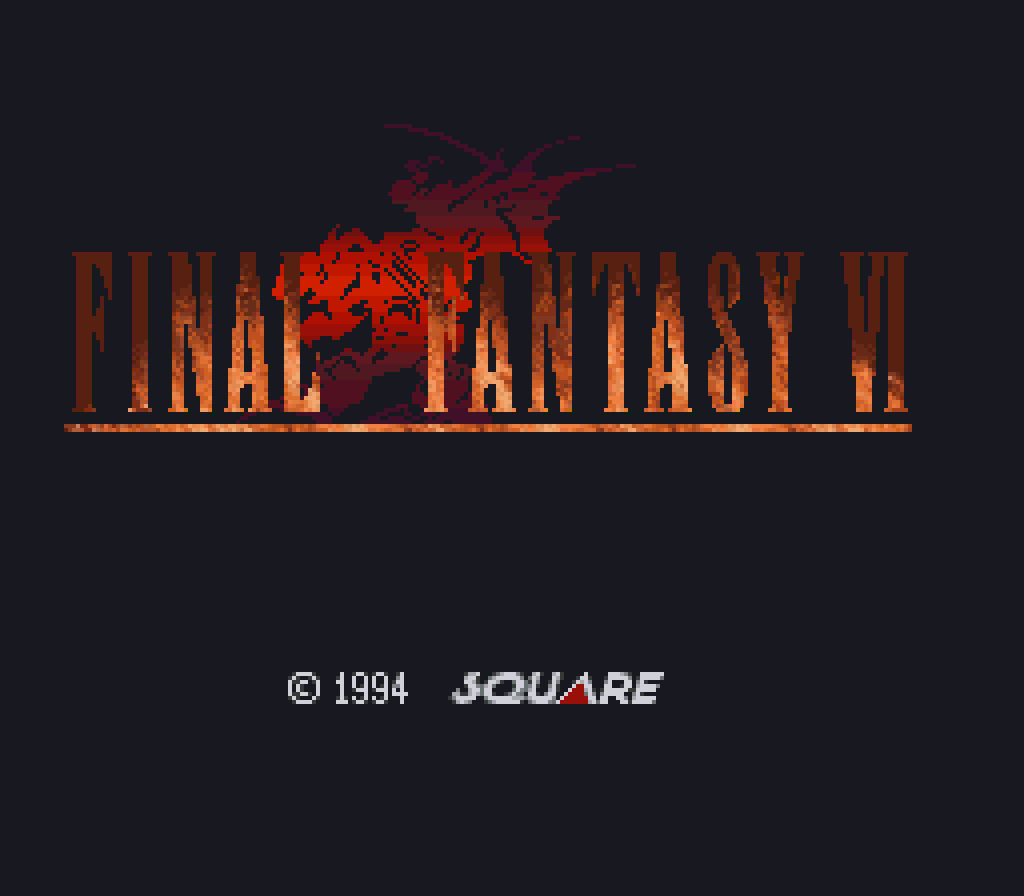
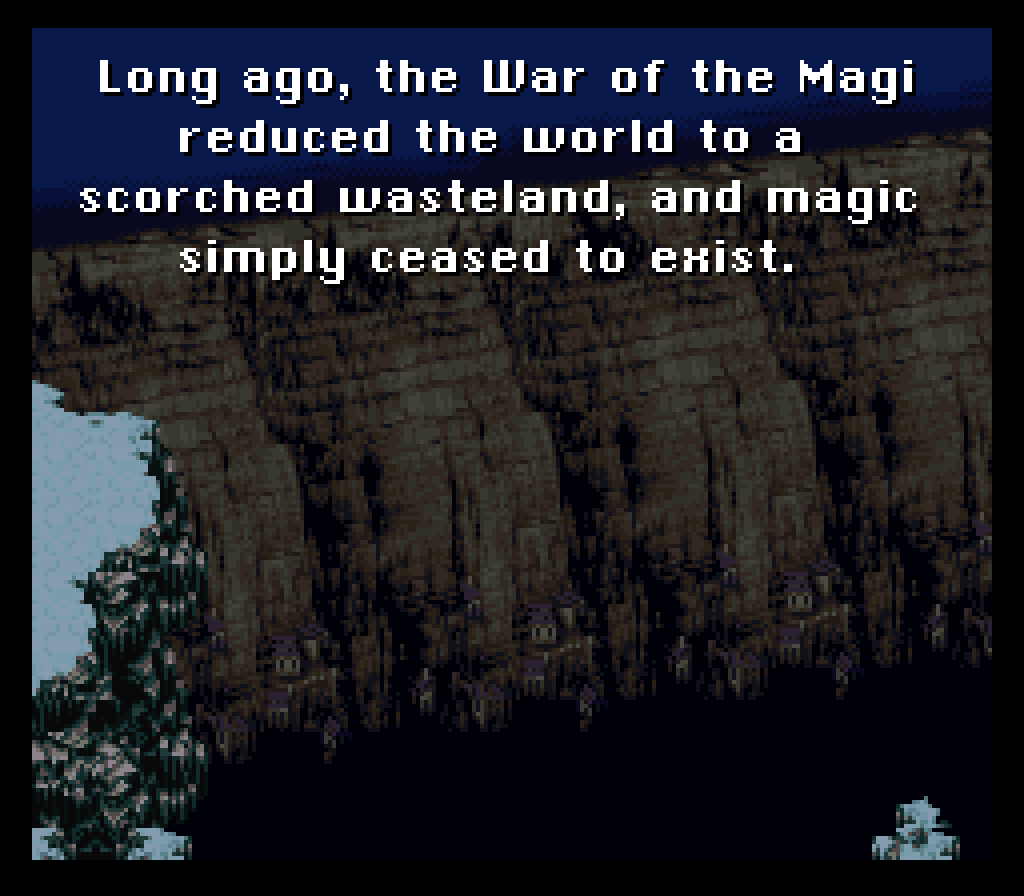
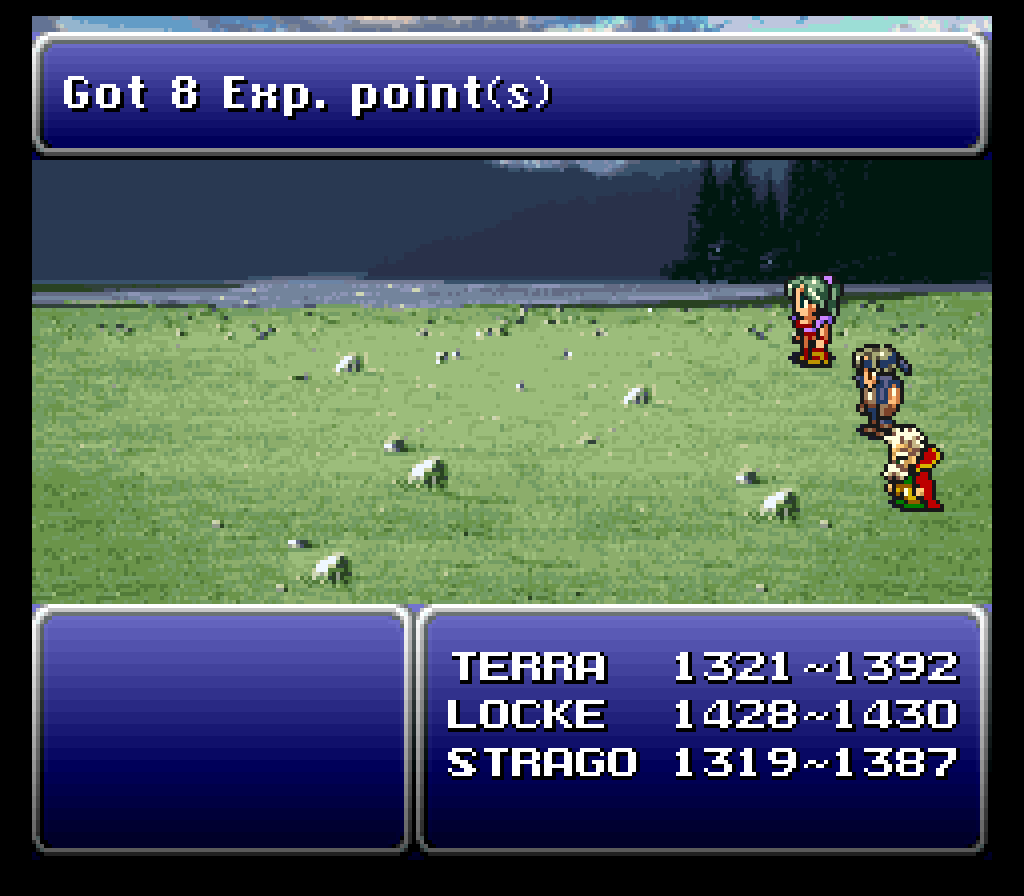
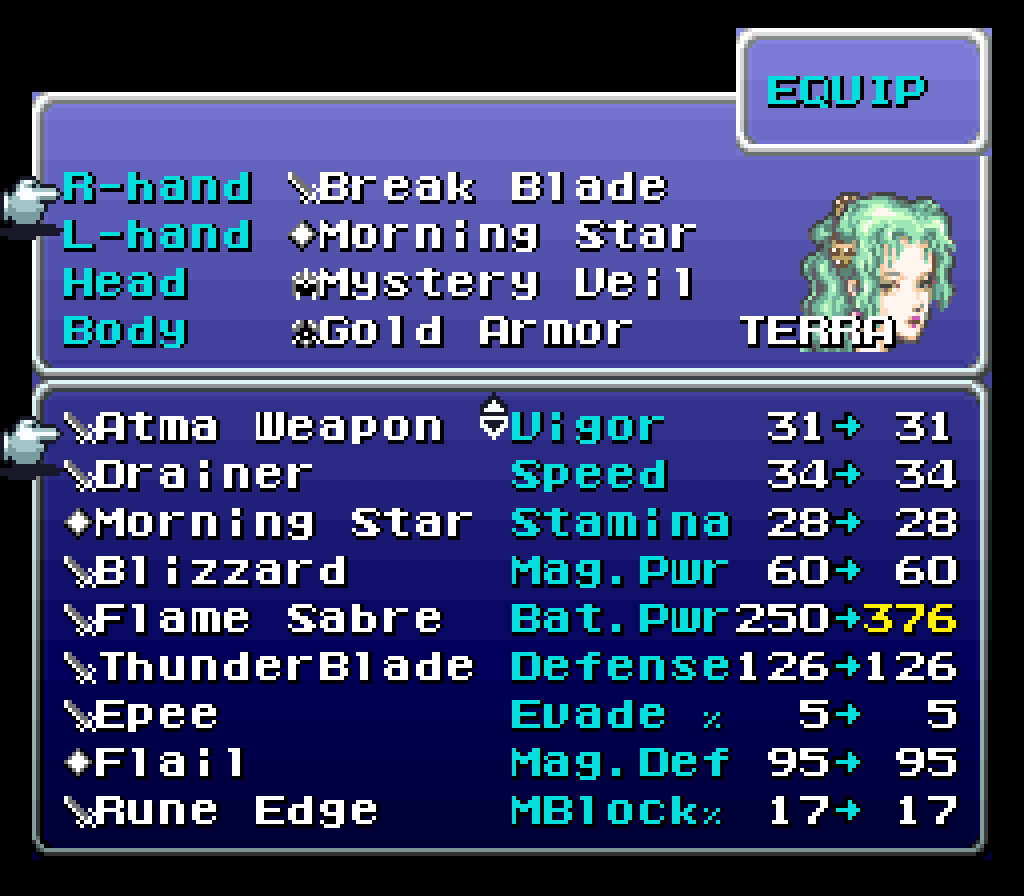
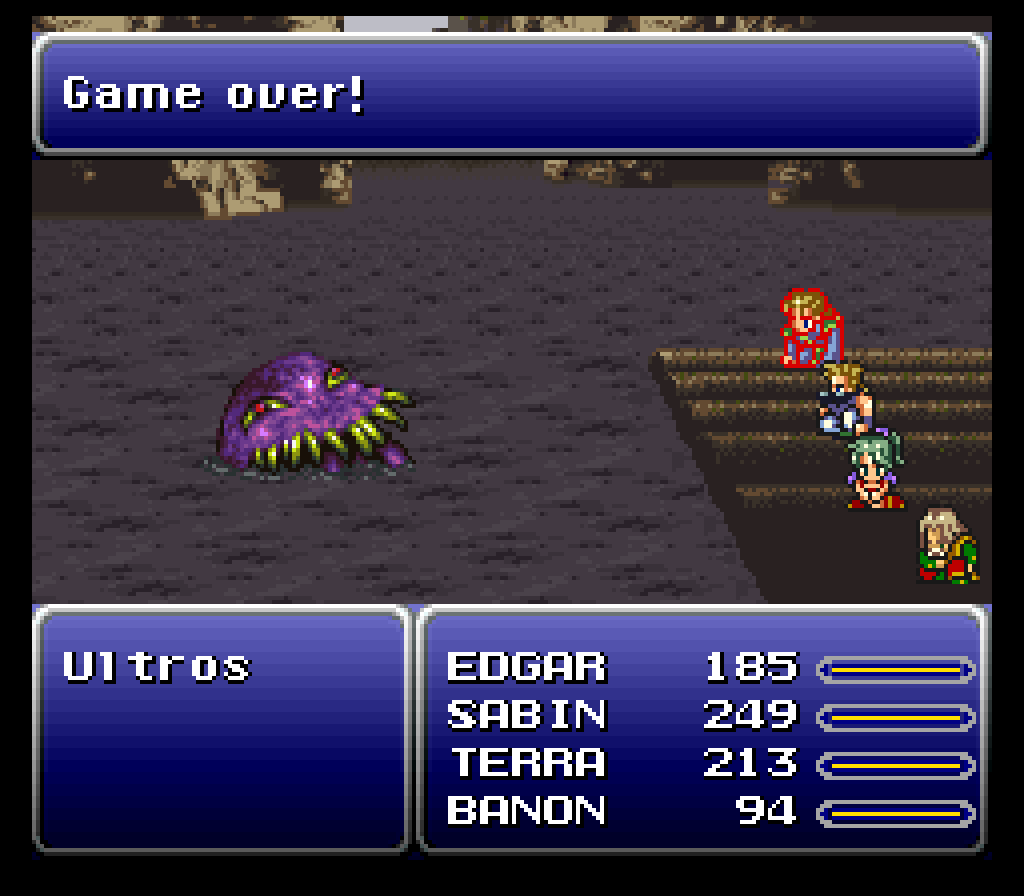
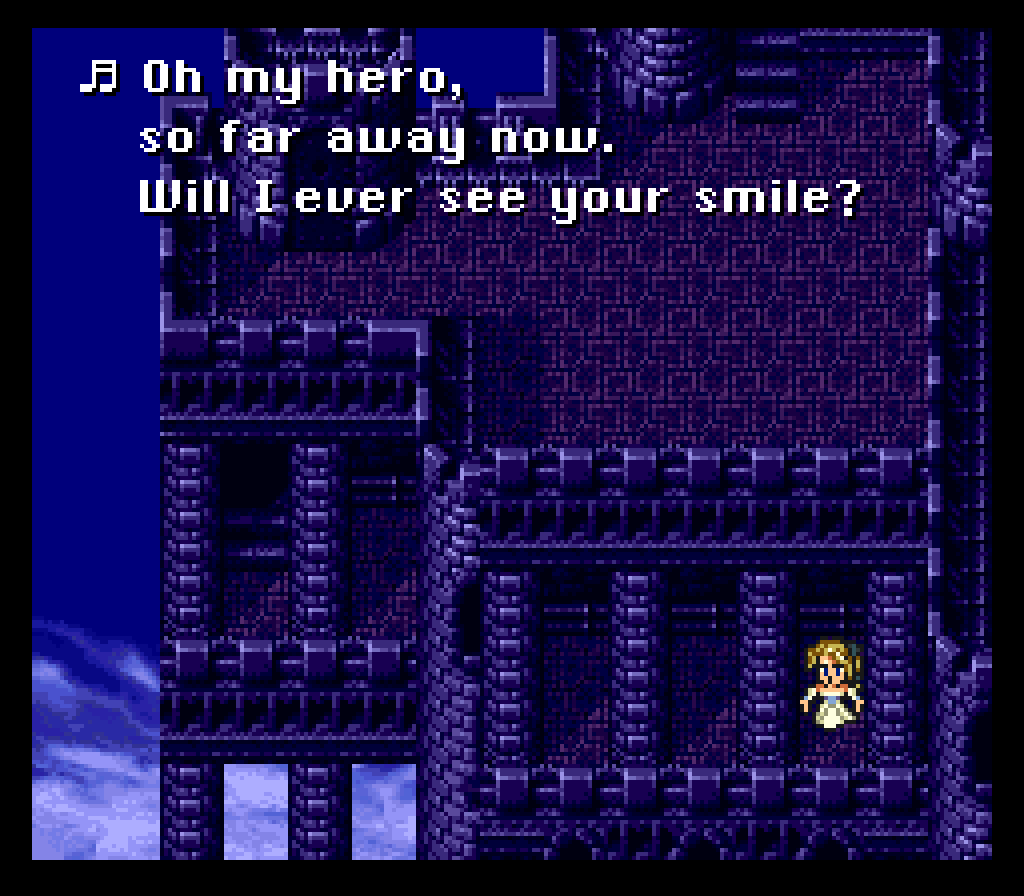
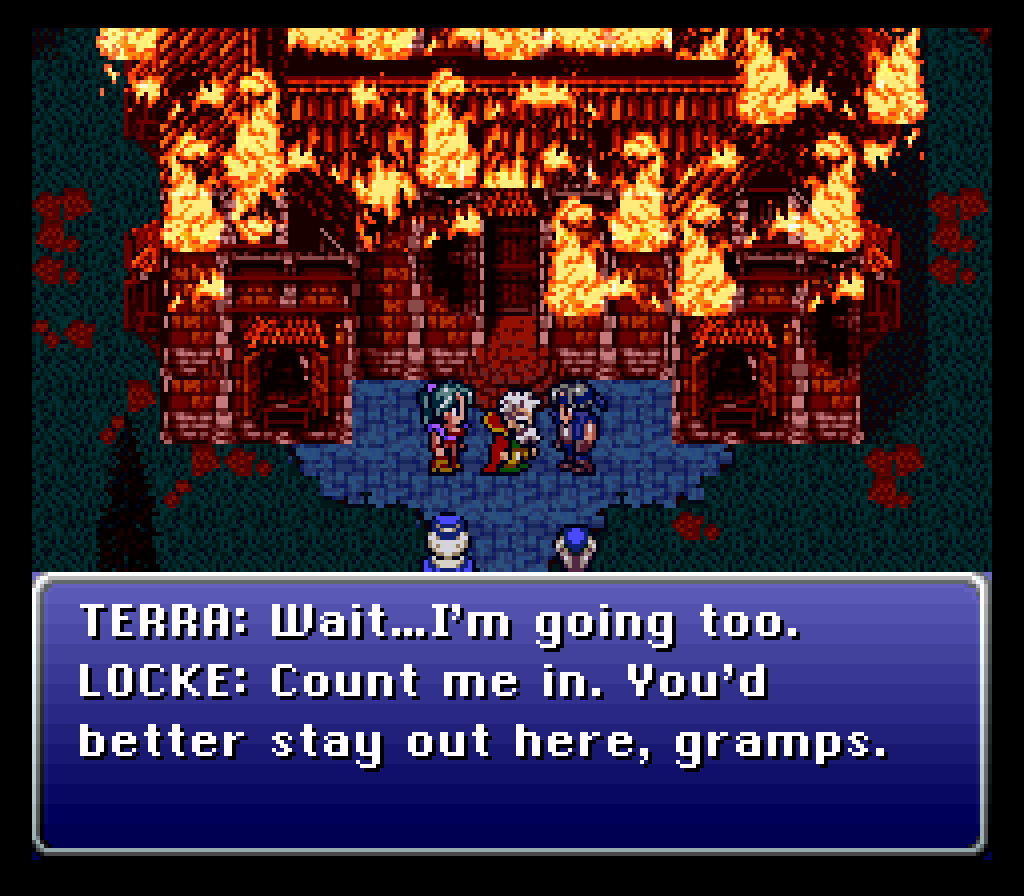
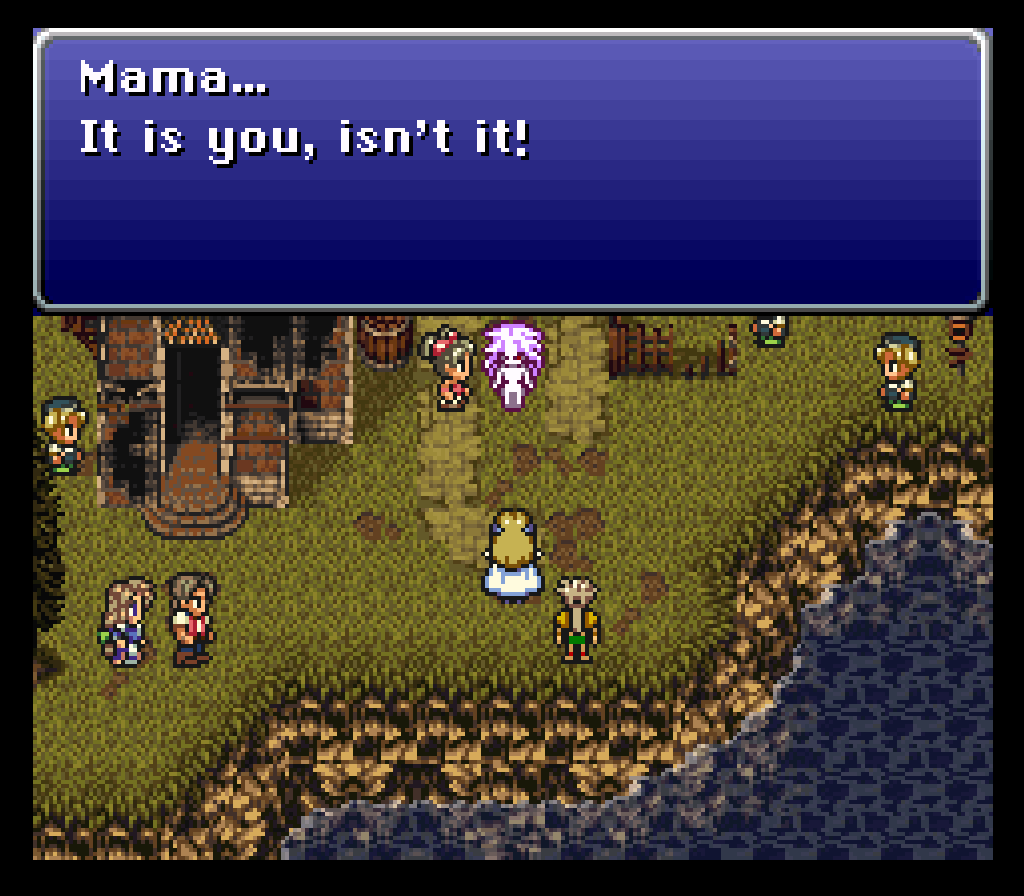
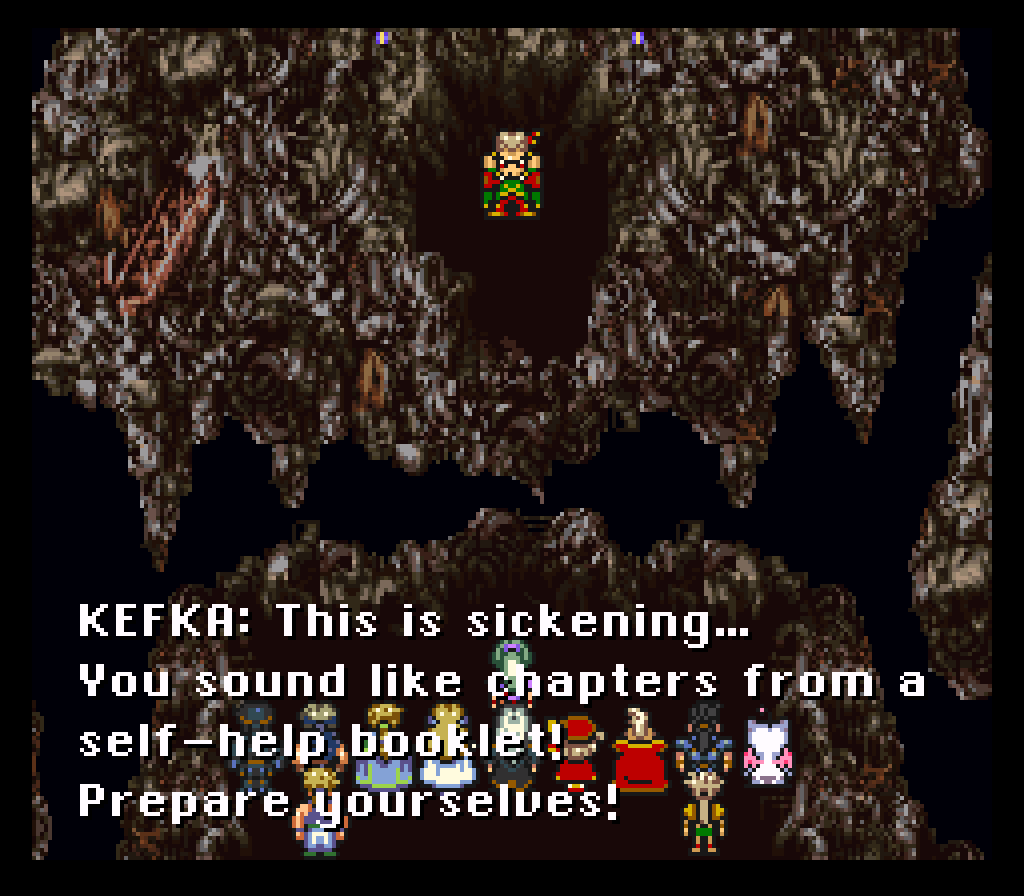
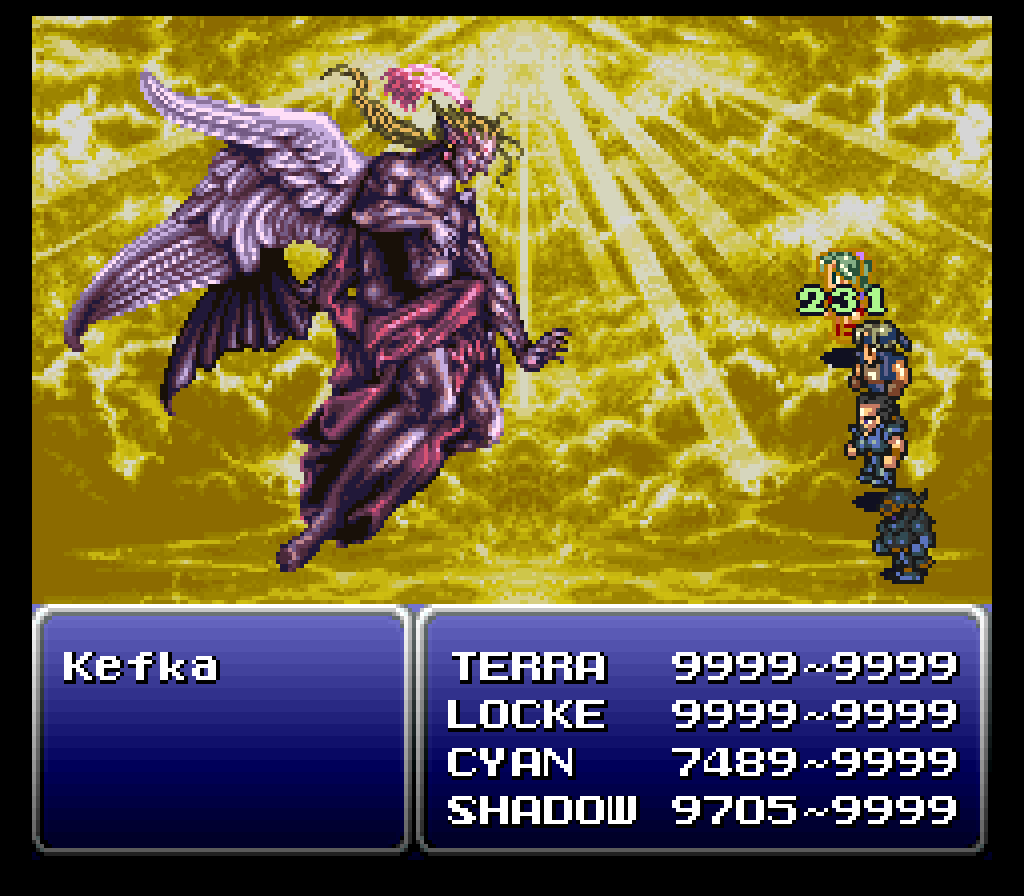
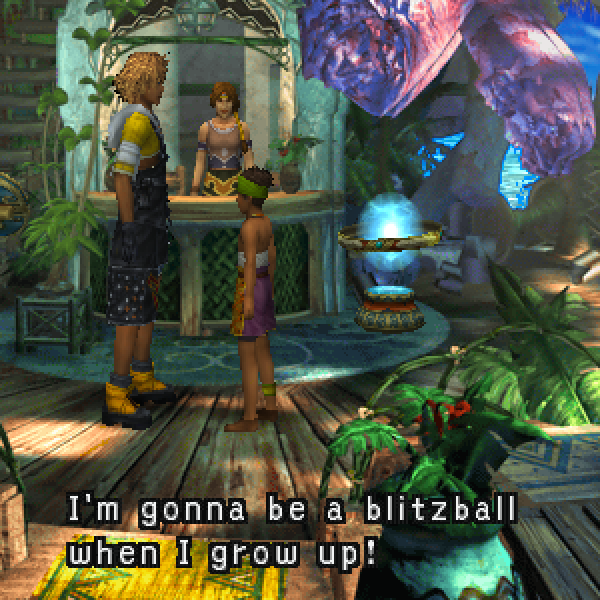
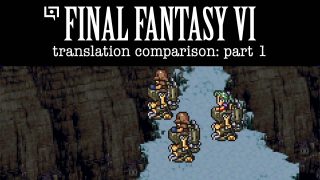

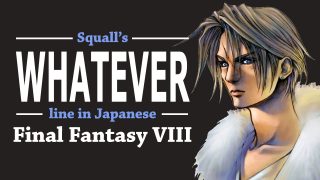
It’s “Son of a sandworm!” in the English-language GBA port.
The GBA script is a major rewrite of the SNES script and tries to retain a lot of the more memorable stuff from the original. I’m not sure why this line was changed at all; there was a lot of outcry about it when it came out, despite being so similar to the original.
The GBA version actually references the original line elsewhere, too. There’s a development message found alongside the strings used in Figaro Castle:
Error.
Contact a supervisor.
From: Development Team.
In the GBA version, this has been changed:
you must be one Lete
son of a submariner
to have found this
It might’ve been changed because FF6 does not actually have any submarines in it.
Or it could have foreshadowed the underwater portion of the game that could technically be looked at as submarining. Not that I believe that, but if we’re pulling things out of our ass then that’s my input.
Yet FF7 does.
You will notice many connections between 6 and 7. In the Sabin scenario, he starts in an old mans house who is ranting and raving about fixing a “clock on the wall” which does not exist, but of course you will see a clock pointed directly to 2 o’clock after the phantom train is defeated – a direct reference to losing two loved ones at once.
Both the music and scene are recreated in FFVII after the infamous terrorist reactor bombings and the subsequent great train escape — surely they are both beyond our time yet to fully comprehend.
I think this particular case can be treated as a Woolseyism, a license taken by Ted Woolsey himself.
In fact, it’s the Trope Namer and the page quote.
And the page image for the /VideoGames subpage.
http://tvtropes.org/pmwiki/pmwiki.php/Main/Woolseyism
The reason why this line became so memorable to English speaking fans of the SNES Final Fantasy III is because of how colorful it was. If it had been a stock swear word, it would’ve been the same as any other line with the same swear and the silliness of it would have been severely downplayed.
…Then again, in the Japanese, Kefka isn’t being silly at all. I wonder, is he ever silly at all? Like, does he ever act like a clown? I remember in the SNES localization, there’s mention of him being a clown. Seeing how he is portrayed in Dissidia, I imagine that he remains eccentric and absolutely nuts, but yeah.
Loving this blog, btw!!
I read on a forum somewhere that Japanese players didn’t really connect with Kefka’s motives, but Woolsey made him goofy, making him more popular over here.
Kefka, from what I remember, was more like a “flamboyant Exdeath” in the original Japanese version. However, Woolsey made him the more colorful villain he’s known to be in the west. Kitase (or Nomura) actually liked that Kefka more, and used it in Dissidia.
That’s actually a good question – I haven’t played the Japanese version in like 10+ years so I don’t remember much off the top of my head, but from what little I saw getting these screenshots it definitely felt like English Kefka seemed a little sillier and crazier. I guess this’ll be a big thing to look out for whenever I do a full look at the game sometime.
It’s hard for me to believe he’s not silly in the Japanese version after seeing the way he acts in Dissidia. Disregarding the dialogue, he still comes off kooky and mad. And that’s another thing. The name for his theme is Dancing Mad, so I think Kefka to some extent is kinda silly in Japanese as well
Dancing Mad isn’t what his theme is called in Japanese though. It roughly translated to “Wild dance of a calamitous star”, which matches with the Japanese version of his character – he is ‘wild’ and calamitous…but not really “dancing mad” (i.e. a play on the phrase “hopping mad”)
And I think we can thank Tellah’s “Spoony Bard” line for giving a generation of both children and adults a new way to appreciate interculture translation. Or, for some of us, learning to read.
He was never meant to be a clown, exactly. In the GBA translation he’s called a “court mage,” which I guess could be something like a jester. However, in the Japanese, he’s just called a magician/sorcerer.
Woolsey, apparently, saw his clown-like appearance and basically wanted to make him a fantasy version of The Joker. Of course, this is the version that became memorable to the point that his future appearances in Japanese media have gone with his American personality.
As far as Japanese Kefka goes, my understanding is he was more generically mean, but in an almost childish way.
I hope you take a look at Donkey Kong Country some day. What’s interesting is that it is developed by an English-speaking developer, so rather than looking at a game translated from Japanese, you’d be looking at a game translated from English!
I’d translate Kefka’s frustrated noise as “Grrrrraaaah!” myself, but I’m not a professional translator or even someone who knows more than 3 words of Japanese.
Maybe “Gyyyyyaaaah!”, but still.
Yeah, that sounds like a good one!
I’ve always liked this line, and every time I play through FFVI (it’s coming to Wii U so that’ll be some number +1 pretty soon) I wonder what it was in Japanese. Thanks for this!
I think one of the reasons it is so memorable is it comes so early in the game, and it comes just as we start meeting the characters, including Kefka. I think it also works, crucially, because it comes before Doma. (In a way it works as a bit of a misdirect for the player as to what to expect from Kefka in the long run. In a good way.)
Figaro Castle had just vanished underground when Kefka said this line. It submarined under the earth. So the line is cute, adds a bit more flavour to a comparatively boring line, and actually makes sense in context. The change in the GBA version makes the feel Woosley was going for with the translation clearer imo, since sandworms are also burrowing creatures. People still mistake both for irrelevant and bizarre lines though, when only the bizarre part is true!
Actually the sandworm line is a reference to the Final Fantasy IV rarity of the sandworm, which would either wipe out your party or give Cecil and Rydia a free level up. You will of course know this to be referenced between the two games as Figaro, Doma Castle, and Damcyan (where Cyan from FF6 got his name and where the poison the river also got its German Zyklon joke from — and cyanide. If you look closely at the Cyan scanario with Sabin, you will notice in the background of battles the distinct warfield markings of the German “no-man-land” battlefield structures imployed during the first World War).
On the subject of Kefka, there’s a cutscene in Dissidia wherein Kefka tells Zidane (referring to Bartz) that “the mouse is SMACK… dab in the middle of enemy territory.” The word “smack” is given its own space in the subtitles and is punctuated by a dramatic zoom on Kefka’s face. Is this some Japanese pun they decided to translate literally?
I looked into this and will probably make a post about it sometime, but the quick answer is that it’s pretty much the same way in Japanese too. It has a weird emphasis on an adjective/modifier for “center”.
the snes rpgone translation translated it as `son of a bitch` i think it is better becouse there weren`t any submariners in that time or in the game. also is it true that Cefca is the japenese way to spell his name?
I looked very quickly at some Dissidia videos and the Dissidia Japanese site and yeah, it looks like they spell it Cefca there. I’ll probably make a post about this too someday!
The GBA version actually references this, too. One of the Figaro Castle soldiers says this in the World of Ruin:
I hear that some fanatical members of
the Cult of Kefka insist on spelling
Kefka’s name with Cs instead of Ks.
That just seems silly to me. Kefka’s
Kefka. He’s still the same villain, no
matter how you spell his name!
I took it as a little dig at RPGOne’s retranslation.
The “Cefca” spelling is used in the tracklist for the soundtrack CD release. I think it might appear in the game manual as well, not entirely sure. It’s definitely been around since the SNES days, at least.
A fan, who went by the name Lina Darkstar made some nice FFVI translations and had this to say about it which I found very interesting;
(Kefka: “Grrrr– SHIT! I’ll get you for this!”
…which was about what I’d expected, except for one thing. The grammar pattern he’s using there (he says “kaeshimasuyo”) is NOT what fits in context. In fact, the -masu form is polite. And the -yo at the end there is feminine.
So imagine Kefka swearing and yelling that he’ll take revenge, but doing so in a way that’s… somehow… polite and feminine.)
From her description it sounds to me almost like an impossible character to convey good in text. But, strangely enough I do recognize somewhat what she meant when I’m now seeing your take on it. Tomato, do you have this same perception from the Japanese Kefka, with the weird grammar? Curious…
I really need to sit down and look at more of his text, but I seem to recall that he often talks in the polite form sort of how creepy bad guys sometimes talk in polite manners but are actually evil, scary people. The “yo” ending doesn’t strike me as particularly feminine though, it’s hard to put my finger on the type of character it portrays. I want to say it feels to me more like a spoiled guy in a position of power, but that’s reading way way too deep into it. In any case, it doesn’t have a particularly feminine vibe to me, but I really ought to look at more of his text sometime before I can say much more.
He talk the same way Freeza talks in Dragonball, doesn’t he?
I don’t know – I don’t know enough of Kefka’s style and I don’t really remember Freeza’s style at all. It’s just a standard, polite tone from what little I could tell of what I played the other day.
Interesting, thanks for your detailed answer considering the little you have to go on! I can definitely see the polite form in your translation, what she described as feminine might just be evil giddiness then. 🙂
I always interpreted this line as Kefka getting angry or surprised with Castle Figaro being a desert submarine in a way. I also thought that the line was aimed at Edgar.
Amen. 33333333333333333333333333333333333333333333
I remember seeing a Japanese FF Wiki with a “Quotes” section and Kefka was the character with the most.
So yeah, the rumors about Kefka being memorable ONLY thanks to Woolsey are greatly exaggerated.
If I were the one translating this for Nintendo, I would have translated it as:
Cefca: Grrr! Darn it!
Next time around, they’re gonna pay!
Sounds awkward, cause I didn’t think too much about it.
Seeing as I’m the guy who did the fan translation all those years ago, I can tell you exactly what I wrote.
Cefca
“SON OF A BITCH!
You’ll pay for this!”
I wasn’t a very good translator, I’ll be the first to admit. Though I did learn a lot from translating FF6.
Whoa, cool, thanks for commenting!
Yeah, when I look back at my own stuff from like ten years ago I’m like, “Argh!” too. One of these days I want to do an analysis or two of my own fan projects and pick it apart and show what worked and didn’t work. I’d love to hear some of your own thoughts on the subject sometime too, although I dunno when that’ll be. Could be years from now at the rate I’m going 😛
I’d also like to do an analysis of FFVI, including possibly talking with the translators for each version. If I ever get around to that I’d love to get your thoughts and experiences on it too. Although if you’d rather not that’s okay too. As it is I’ll probably take another 80 years to finish the stuff I’m already working on, heh.
Hey, I’m up for that. The FF6 translation was really my “first” translation in many ways, so it would be good to actually discuss just what was going on throughout. It’s kind of a pity, actually; I’m far better at localization techniques and translation now than I used to be, but I no longer have any real way to do anything in the fan translation community since I have no ROM-hacking skills. But then, I’ve taken a different path with my life since then, so maybe it’s better I leave the task of translation to those who already do it.
“(Warning: If you’re offended by swear words, turn back now!)”
Or get FoxReplace: https://addons.mozilla.org/en-US/firefox/addon/foxreplace/
Just throwing it out there in case someone really is offended by foul language, like me.
I always thought he said “submariner” because the castle literally submerged into the sand. Maybe this was what Woolsey was thinking…?
That idea kind of goes along with “sandworm” too, since sandworm enemies in these types of games burrow into the ground.
The sandworm actually also used a little sandstorm attack which reduced any teammates health to 0. Perhaps a reference to the technology based infrastructure of the towers of many of the castles in FF6, which relied not on magic but on science. An interesting throwback to the Tower of Babel in FF IV.
I would translate this as:
Arghhh! Darn it!
Those Returners must pay for this!
Kwhazit did this in his translations for FF6.
Cefca: Eeeeeek, dammit!
You’re SO going to pay for this!
Sometimes literal translation is a little dry. I loved that line along with many other Woolsey-isms. It’s why I kept them in my translation.
Basically they took a crude curse and turned it into an interesting pun, as those in James’ Court tend to do.
Son of a * Submariner and Sandworm of course, original meaning “son of a bitch”, now refer to the character sending his castle undernear the desert, below the earth, sub the sands.
Of course by now these translations are part of the culture.
But in all honesty I wish a lot of translation was better. Its not like we have ever lacked japanese-english speakers for the last 50+ years. I also understand the limitations to keep things under a certain age rating, and to try and keep things understandable to a certain demographic. However when things are not even translated, and things are ad-libed, you start to erode the character that they original writer intended away and imprint your own personality and honestly, that sucks far more often than it doesn’t. A translators job should be to translate grammar (and obviously the wording) as best they can, not completely replace what is being conveyed.
But doesn’t “kuso” literaly mean “shit”?